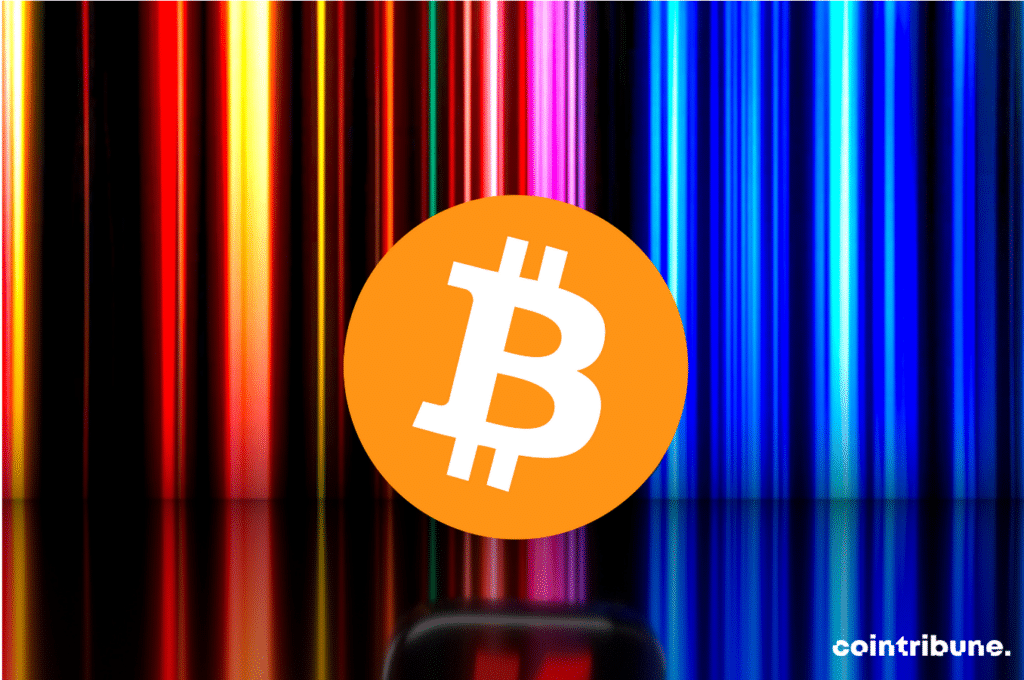Which is more useful between Netflix and Bitcoin?
Should we unplug Netflix instead, or Bitcoin? The question may seem absurd. Yet the question of the social utility of BTC is often at the heart of criticism. But with the same power consumption, is Netflix really more socially useful than Bitcoin?

The social utility of bitcoin in question
The question of the social utility of Bitcoin regularly comes up in debates. Is it really worth it considering the energy consumed by the network? The question seems legitimate. But it should also apply to other digital services in our societies. “For someone who thinks that Bitcoin is a giant casino that just allows speculation, it is certain that Bitcoin will always consume too much energy,” reminds Alexandre Stachtchenko to the media Numerama.
Because if we consider Bitcoin from the point of view of collective emancipation, it seems at first sight more “useful” than a streaming entertainment platform. Bitcoin offers a decentralized currency, a bulwark against monetary policies that favor the markets, such as during the 2008 subprime crisis. The banks were bailed out with hundreds of billions (of public money) created via debt. It was this event that precipitated the start of Bitcoin in 2009.

Firstly, we have to recognize this: it is very difficult to evaluate the power consumption of services as vast as the Internet, Netflix, Bitcoin, or Google’s online advertising. However, some estimates give us an idea of the energy costs of these digital services. So, streaming consumes energy. A lot of energy. According to the Shift Project “With 170 million subscribers worldwide, based on a consumption of 2 hours of Netflix per day, the platform represents an electricity consumption of about 94 TWh”.
The huge consumption of Netflix (and streaming)
However, there are other problems specific to streaming. Indeed, this practice encourages people to equip themselves with ever more powerful hardware: smartphones, televisions, processors… It is a whole industry that is extremely greedy in resources (and not only in energy) that is necessary for streaming. Because in reality, it is the manufacturing of electronic parts and components that consumes the most. And that’s not counting the frantic race for audiovisual productions, the filming and its CO2 emissions…
But the same criticisms can be made of bitcoin. The network now depends on sophisticated mining devices, requiring high-tech graphics cards. Numerama, reports a study from Cambridge that the consumption of BTC to 95.42 TWh. A figure very close to the consumption of Netflix. However, bitcoin seems to be less energy intensive in terms of everyday use. All you need is an old PC to transfer bitcoins from one address to another. It is even possible to exchange BTC without the internet and without a smartphone, with just a phone. Bitcoin is not naturally high-tech. It does what it was designed to do: provide a secure and incensurable protocol for exchanging value, via the blockchain.
Netflix, a company that seeks profit at all costs
In a way, Netflix consumers are unwittingly feeding a highly speculative system, which exploits streaming like any other business. As a multinational company, Netflix has to respond to very strong commercial logics. All the more so since its growth has only been made possible by an aggressive growth policy. When it was launched, the service was sold at a loss, at knock-down prices, to attract a “critical mass” of customers, and by absorbing the competition.

Little by little, it was easy for Netflix to gradually increase its prices. The problem is that it must now pay back investors at all costs in order to meet production costs. Nevertheless, Netflix shows its good intentions and assures to take into account its ecological impact:
Netflix exists to entertain the world, and that requires a habitable world to entertain. Which is why environmental sustainability is important to us at Netflix.
Official website of Netflix
If we can congratulate ourselves for such a position, we should not be fooled. Which multinational company can say today that it does not give any importance to its impact on the planet?
Bitcoin and Netflix: two opposing models
Bitcoin, on the other hand, is not a company. No leader or manager can claim ownership. Moreover, it is open source: the source code of the protocol is freely available. All over the world, developers contribute code, discuss, exchange and reach a consensus on the protocol. Some bitcoiners run nodes without any form of compensation, except for contributing to a truly decentralized network.
One could of course mention the fact that Bitcoin uses a good part of decarbonized energy, that it allows to valorize fatal energy (unused energy), for example by proposing to recover the losses from the methane industry. Or that bitcoin allows countries to finance their infrastructure, as is the case with dams or energy from volcanoes.

A sustainable currency?
One could also find this approach hypocritical, close to greenwashing. In fact, that is not the point. As we have seen, social utility is the argument that wins out. It is not necessarily measured in terms of operating costs, but rather in terms of benefits (difficult to measure), regardless of energy consumption. This is typically the case of the Internet, which is nowadays very little questioned: it is considered as a given, an indispensable basis, despite its far from zero ecological impact. Moreover, the Cambridge researchers behind the study on mining consumption remind us:
Bitcoin means many things to many people: some see it as a new store of value […]; others appreciate the underlying value transfer system that enables both payment and settlement functions […], resisting censorship; still others are primarily attracted to the incorruptible ledger function made possible by its tamper-resistant public ledger. Therefore, direct comparisons with other seemingly similar activities can only provide a partial, and therefore necessarily incomplete, picture.
Cambridge Bitcoin Electricity Consumption Index (CBECI)
After all, one might also think that neither Netflix nor Bitcoin are worth the cost of running them. This is a very technocritical posture, of course, but it can be understood in light of the state of the world, and in particular the collapse of biodiversity and climate disruption linked to human activities.
However, bitcoin also invites us to question the monetary functioning of our world. Available in limited quantities, bitcoin is not intended to exist in a world of infinite growth. A design that is the opposite of the euro or the dollar: currencies precisely designed for infinite growth of the economy and production. This is why Bitcoin can also be seen as the currency of degrowth, admittedly imperfect, but which proposes at least a step aside, a fork in the road on the monetary issues that guide the choices of our societies. So, should we go for Netflix & chill or Bitcoin & dream?
Maximize your Cointribune experience with our "Read to Earn" program! For every article you read, earn points and access exclusive rewards. Sign up now and start earning benefits.

Fascinated by the history of Bitcoin and the cypherpunk movement, I think that citizens must reinvest in the field of currency. My goal? To democratize and make visible the potential of blockchain and cryptocurrencies.
The views, thoughts, and opinions expressed in this article belong solely to the author, and should not be taken as investment advice. Do your own research before taking any investment decisions.